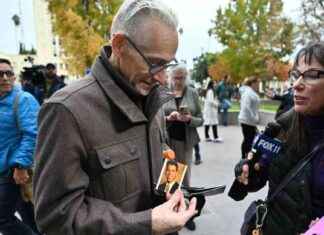A young collegelärare in the united states can’t get out of bed in the mornings without Oxycodone. He’s trying to keep life on the feet with the help of drugs like Suboxone, Vicodin, Dilaudid, Tramadol, Heroin. It doesn’t go well. But with his dual citizenship, he sees Sweden as a rescue; a free education and preferential student loans could be the straightest path towards a master in comparative literature (at the side of the us in the literary arts) and out of the abuse. He ends up in Lund. In the middle of the stridaste the flow of refugees, 2015, and want to help.
If it sounds messy, incoherent, so, the result is different.
the main character, Jonas Anderson’s (probably the right amount of Swedish-american John Lichtmans) step towards the 30 mark is in a way as to follow a set track through California, North Carolina, Oregon and sweden, Skåne, by the professional and tentative kulturkarriär, addiction and sobriety, and relapse, and their love lives and the great loneliness. But despite the fact that ”Something must be decided” all of the time and moves forward as a detailed diary, it is mainly in the spaces.
it is, as if the magnets pull on each side of him; the high social dude, the abstinent dull and solitary jogger. Streberakademikern with författarambitioner and lazy drinkaren and tv-sportfånen. He who in the midst of the crush, gazing nostalgically towards the singellivets low intensity, the dreamy missing. Which publishes the compassionate flyktingpamfletter on social media but are disgusted by the selfish compassion. Jonas Anderson are written simply as a real human being, one who wants to do good but notice that he feel good to do wrong. A person who, in the cavities between the categories, definitions, identities, trying to decide on a posture, a direction. To do something that makes a difference.
It is a very generational, sympathetic portrait.
Anderson’s look at Sweden’s new, and he therefore looks for other things, more objectively, curiously, both in terms of the purely physical, temperament, and routines. This, horrible expression, fresh eyes is also evident in the live flanörmässiga miljöbeskrivningarna, particularly from Malmö. The portraits of the unaccompanied flyktinggrabbarna, with whom Jonas has språkkafé once a week, or the tältande at the central station is respectful and osentimentala.
feel honest in particular. It is as if Jonas is on the hunt for a truth: He sees their need and he can’t not do something, at the same time he is wrestling with to fall back in to be himself: ”For the most part hinted I a tragedy that I could not manage to talk about. The truth was too boring: my life caused me periodically suffering, just as it is for anyone. When I got hold of a drug as a dissipation of the suffering poked I of me the. I knarkade for that it was nice to be high. I drank because it was nice to be full.”
Lichtman is erudite but lacks mallighet, dark småhumoristisk but never gets (correction: not too often) Nick Hornby-jovial. Critical without being judgmental. And he is sharp with simple tools: ”To go around in Malmö in the evenings and the nights felt safer than it had done in Lund, sweden, for dark-skinned men stood and smoked and divided outside a kiosk in Malmö was less creepy than white universitetsgrabbar drunk who tried to impress his friends.”
It is a free narrative, and Johannes Lichtman is a nice new acquaintance.







